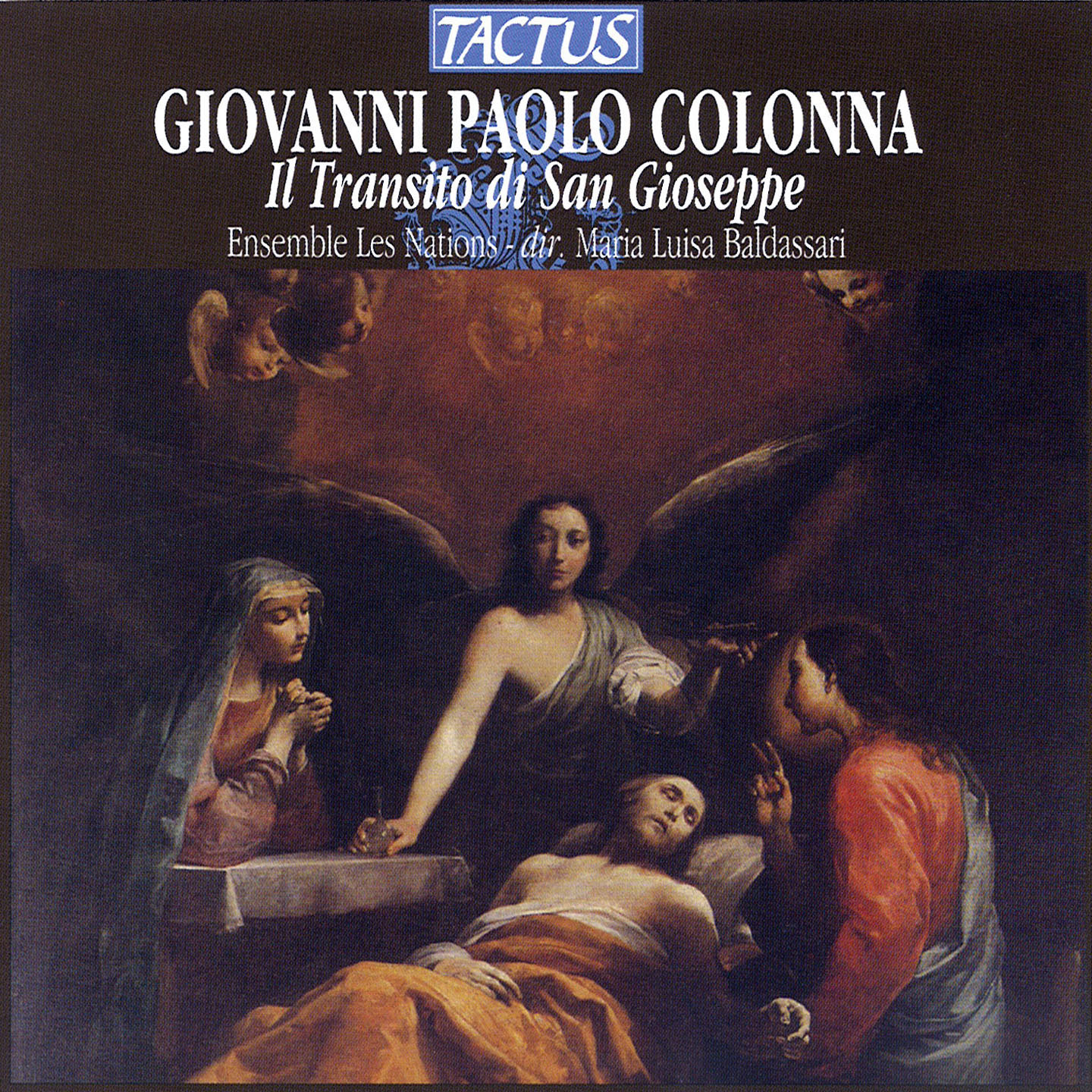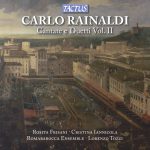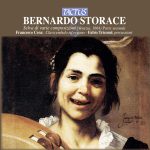COLONNA GIOVANNI PAOLO
The second half of the seventeenth century was a period of intense “oratorio activity,” not only in Rome (where the genre first developed) but also in other Italian centers such as Modena, Bologna, Florence, and Venice.
Reasons for this dramatic expansion of the oratorio are obviously many, though they can be reduced to, first, the growing influence of the Oratorians throughout the peninsula, and second, the gradual merging of the genre with opera.
In fact, at the time, the oratorio was seen more and more as a substitute for opera—by then the preferred type of elite entertainment—particularly during Lent (from Christmas through Easter), when opera performances were banned by the church and theaters were closed.
This factor also explains why structural, formal, and stylistic characteristics of both genres became increasingly similar.
Often performed within the religious context of the oratories (given their religious libretti), these oratorios were also frequently presented as almost secular entertainments in the noble palazzi of civic or ecclesiastic authorities.
Between 1680 and 1694, Colonna published most of his sacred compositions in twelve collections, but many more large concerted masses, psalms and Magnificats remain unpublished and are still extant in the Österreichische Nationalbibliothek in Vienna.
Several of his oratorios are now preserved in Modena and in Paris, whereas his two operas are lost.
While he kept satisfying his Modenese patron with oratorios, Colonna also kept producing oratorios for various noble families in Bologna, whose representatives were often Senators or Anziani and members of the Fabbriceria di San Petronio.
Of the fifteen oratorios we know he composed (only one of which was written in collaboration, with Giovanni Battista Vitali), only six scores have survived; the earliest is Il Transito di San Giuseppe (1678), recorded here.
Tracklist
Colonna, Giovanni Paolo
Il transito di San Giuseppe
1 - Sinfonia (2:39)
2 - Gia per alto decreto (Testo) (1:10)
3 - Giuseppe (Angelo, Giuseppe) (3:58)
4 - Purche del mio signore (Giuseppe) (3:42)
5 - Di perigliosi assalti (Angelo) (3:37)
6 - Se'l mio Dio così vuole (Giuseppe) (3:36)
7 - Gioseppe, amato sposo (Maria, Giuseppe) (5:15)
8 - Maria partir degg'io (Maria, Giuseppe) (1:35)
9 - All'annuncio infelice (Testo) (0:44)
10 - Mesti lumi, lacrimate (Maria) (5:54)
11 - O cieli, ecco mio figlio! (Maria, Gesu) (2:10)
12 - Ah figlio, e quale amore (Maria) (3:10)
13 - Deh su l'umido ciglio (Gesu) (2:46)
14 - Se così vuole il Ciel, deh, ceda il core (Maria, Gesu, Giuseppe) (3:26)
15 - Or mentre ad implorar celeste Aiuto (Testo) (0:47)
16 - Oh qual ohime mi sento (Lucifero) (4:16)
17 - Agli oltraggi nemici (Lucifero) (2:34)
18 - Vicina all'hore estreme (Lucifero) (2:15)
19 - Madrigale a 5: Folle e ben chi presume (All) (1:13)
Disco n.2
Colonna, Giovanni Paolo
1 - Poiche del Tempio entro l'angusta mole (Testo) (1:01)
2 - Sommo nume, alla tua mano (Giuseppe) (2:50)
3 - Sposa, figlio, vi lascio (Giuseppe, Gesu, Maria) (3:51)
4 - Ceda amore alla costanza (Maria) (3:15)
5 - Ma il Regnator de l'ombre, a cui fratanto (Testo) (0:44)
6 - Su su svegliatevi (Lucifero) (3:28)
7 - Voi Gioseppe turbate (Lucifero) (1:23)
8 - Ed ecco il buon Gioseppe (Testo) (0:47)
9 - Figlio, Figlio, e qual sorte (Giuseppe) (1:21)
10 - Di che paventi o Padre, ah che non vale (Gesu) (2:07)
11 - Ah figlio, e sara vero (Maria) (4:25)
12 - Di morte vicina (Giuseppe) (5:28)
13 - Amato genitore, ah, non temere (Gesu) (3:14)
14 - Eccomi dalle sfere (Angelo) (3:32)
15 - E voi intanto (Angelo) (3:33)
16 - Così all'hore fatali (Testo) (0:49)
17 - Che far più mi potete (Lucifero) (1:15)
18 - Madrigale a 5: Mai non cede agli assalti (All) (1:18)
- Composer: COLONNA GIOVANNI PAOLO
- Performers: San Gioseppe: Elena Biscuola, Maria; Patrizia Vaccari, Gesù: Laura Antonaz, Angelo: Barbara Zanichelli, Testo: Marco Scavazza, Lucifero: Matteo Bellotto, Ensemble Les Nations: Davide Monti, Margherita Zane, violins; Luca Ronconi, viola; Marco Dal Bianco, cello; Riccardo Coelati Rama, violone;Tranquillo Forza, trumpet; Stefano Rocco, archluta; Marina Scaioli, organ and conductor; Maria Luisa Baldassari, harpsichord and conductor
- Historical Period: Early Baroque
- Code: TC 630391
- Edition: October 2004
- Barcode: 8007194200119
- Set: 1
- Total tracks: 37
- Total duration: 01:39:08







